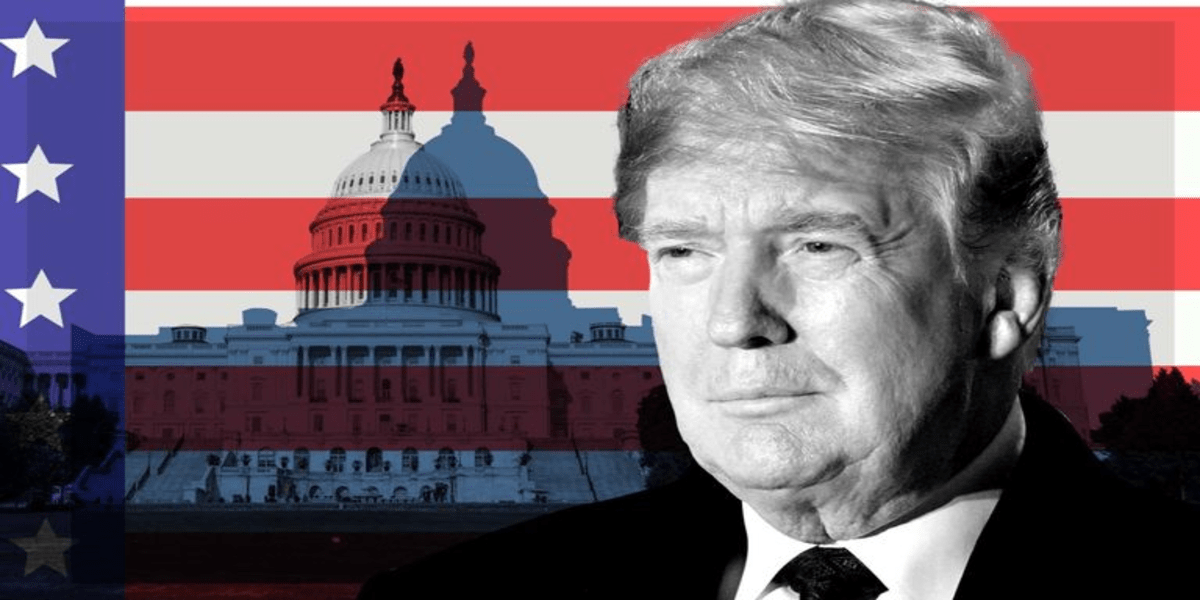That’s a Wrap: Legal Analysis of the Trump Impeachment Trial
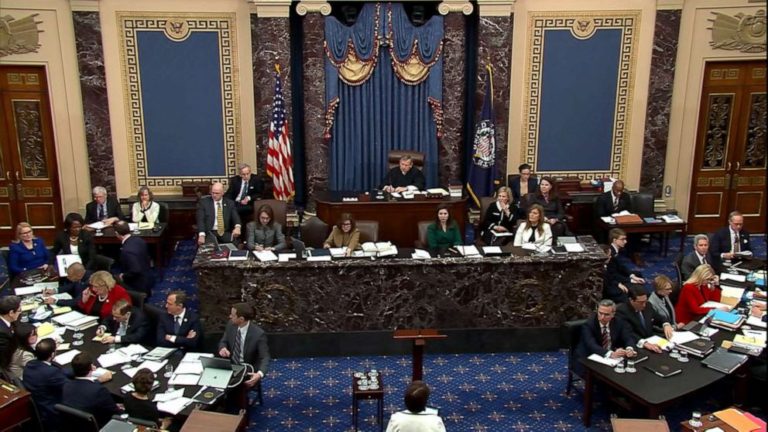
Battle over witnesses, extraordinary procedures, evidence and constitutional crisis; the Trial of President Trump has shed light on one of the Constitution’s most important defense mechanism: The Impeachment Clause.
However, the Impeachment inquiry has unfolded largely as a fight between Congress and the White House, or between the House and the Senate, and is expected to result in the President’s acquittal. As President Trump is set to deliver the State of Union, we reflect of the Trump Impeachment Trial from a legal point of view.
Impeach Me if You Can
President Trump is the third U.S. President to be impeached by the House of Representatives since Bill Clinton in 1998 on charges of abuse of power and obstruction of Congress related to efforts to get Ukraine to investigate political rivals. But from the beginning President Trump knew he would be winning.

Closing arguments were made on Monday before a final vote on Wednesday, 4 p.m ET. President Trump’s legal team shocked senators when attorney Alan Dershowitz argued that presidents could do nearly anything so long as they believe their reelection is in the best public interest. On the other hand, House managers who act as prosecutors, argued that removing President Trump would ensure a fair election.
Law & Politics
Even Impeachment has to follow the rules. The process may be political, but it also must conform to certain legal norms. Impeachment cannot be purely political, otherwise Congress could legitimately impeach and remove any U.S. President for any reason or no reason at all. This would be similar to a vote of no confidence in a parliamentary system such as the United Kingdom where the legislature can at any time rove its chosen prime minister.
The U.S. Constitution, whose meaning is always debated, describe Impeachment as an adjudicative process to determine whether the president has committed a certain kind of offense. In fact, an early draft of the Constitution placed the trial of impeachment in the Supreme Court. But as Alexander Hamilton noted in “Federalist No. 65,” impeachment “can never be tied down by such strict rules” as those in ordinary criminal trials. As a result, it is difficult to seize the nature of an Impeachment. With this in mind, what are the rule in an impeachment trial?
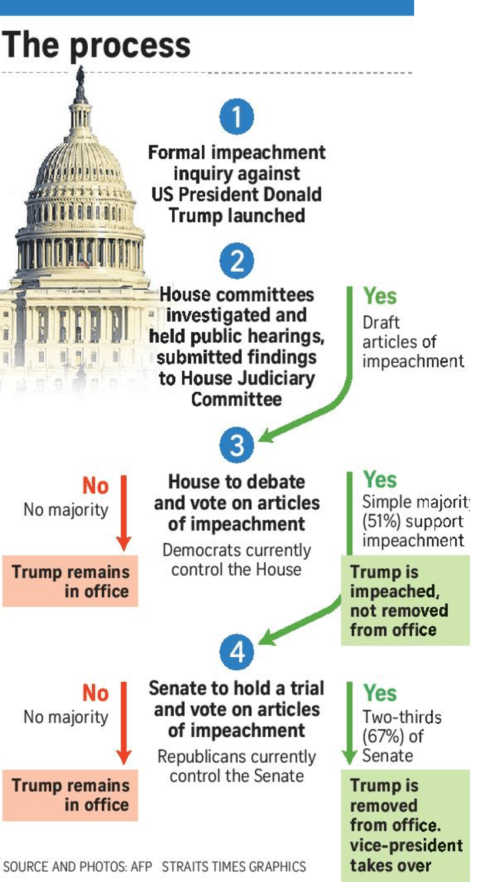
An impeachment trial with no witnesses or evidence
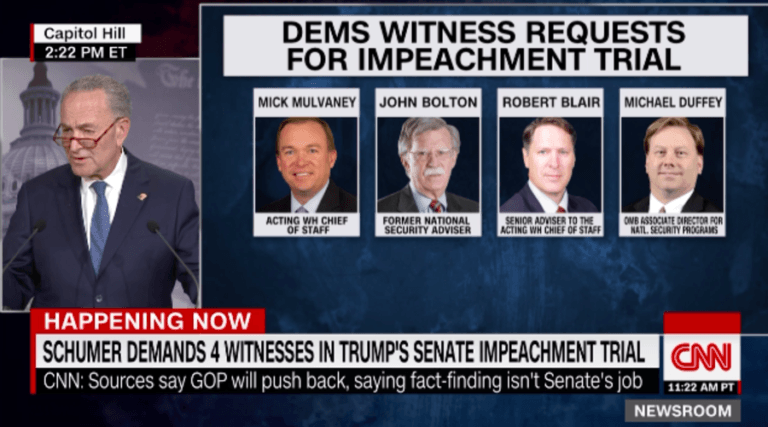
A trial, almost by definition, demands a critical evaluation of disputed facts or legal issues. Now, it is technically possible to have a trial without witnesses, especially when there is no dispute of facts. But as the complexity of a case grows, the need for evidence and witnesses becomes more imperative.
The House of Representatives did examine witnesses and had thousands of pages of documentary evidence. What is missing here is cross-examination. In nearly every impeachment proceeding that has made it to the Senate before now, the managers and the defense have called, examined, and cross-examined witnesses.
When Congress was impeaching Judge Thomas G. Porteous Jr., the rules were the one of a typical trial with witnesses. Yet, Congress adopts here a different process when it comes to impeaching a president. Why is that so?
Let’s get ethical
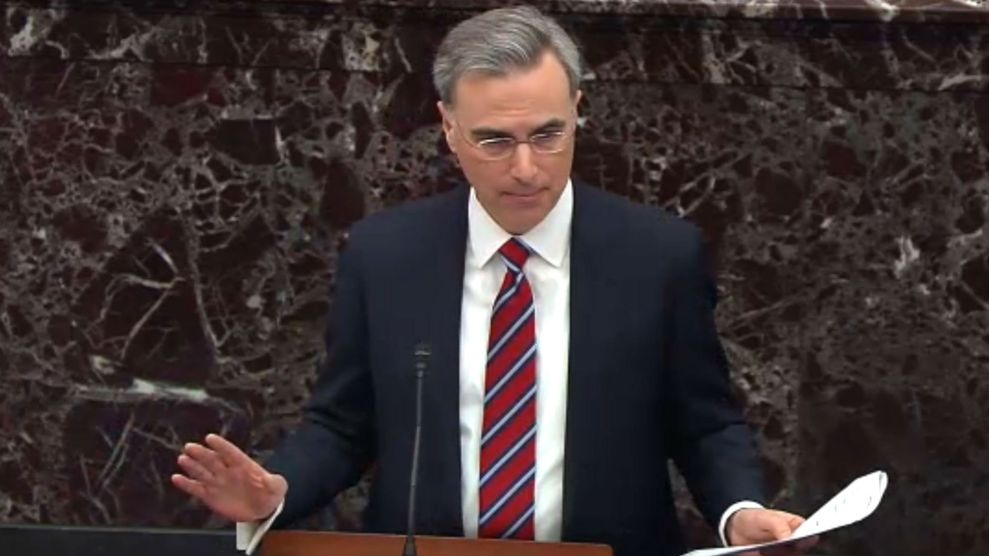
Pat A. Cipollone is the White House Counsel and lead the defense’s team of the President. Surprisingly though, he also participated in the events leading up to the impeachment of Donald J. Trump. That makes him a witness. Under the “advocate-witness rule, when a lawyer is a witness at trial, he or she cannot be also an advocate in the courtroom.” The problem however, is that impeachment trials are not legal trial.
The advocate-witness rule tells us that it is more important for a lawyer with first-hand information about the events on trial to testify than to work as an advocate. From all that appears, Cipollone is what the law calls a percipient witness to the relevant facts. He has personal and significant experience with the events that form the basis for the articles of impeachment. The question is: if the Senate excluded witnesses from the impeachment trial, does the advocate-witness rule become irrelevant? The answer is no.
Another ethical issue arises with the Memorandum that the defense lawyers submitted. Rule 3.3 of the Code of Professional Responsibility requires lawyers to be truthful and candid in the arguments they make before tribunals. The rule counts legislative proceedings as tribunals. Yet, the President’s lawyers take liberties with the law and the facts throughout, for example, maintaining the President’s support for Ukraine is “beyond reproach.” It is likely to be a problem for this assertion given the duties of a lawyer not to make misleading statements or engage in deceitful practices, such as pretending the President did not freeze assistance for Ukraine.
If the crime does not fit, you must acquit
The Impeachment clause requires “high crimes and misdemeanors” for the impeachment of a president. Accordingly, one of the defense strategies in the Trump Impeachment trial was to argue that no crime took place. Some, however, argued that the framers of the Constitution meant to include “any acts that may not necessarily violate any criminal law, but do constitute a serious violation of the public trust”.
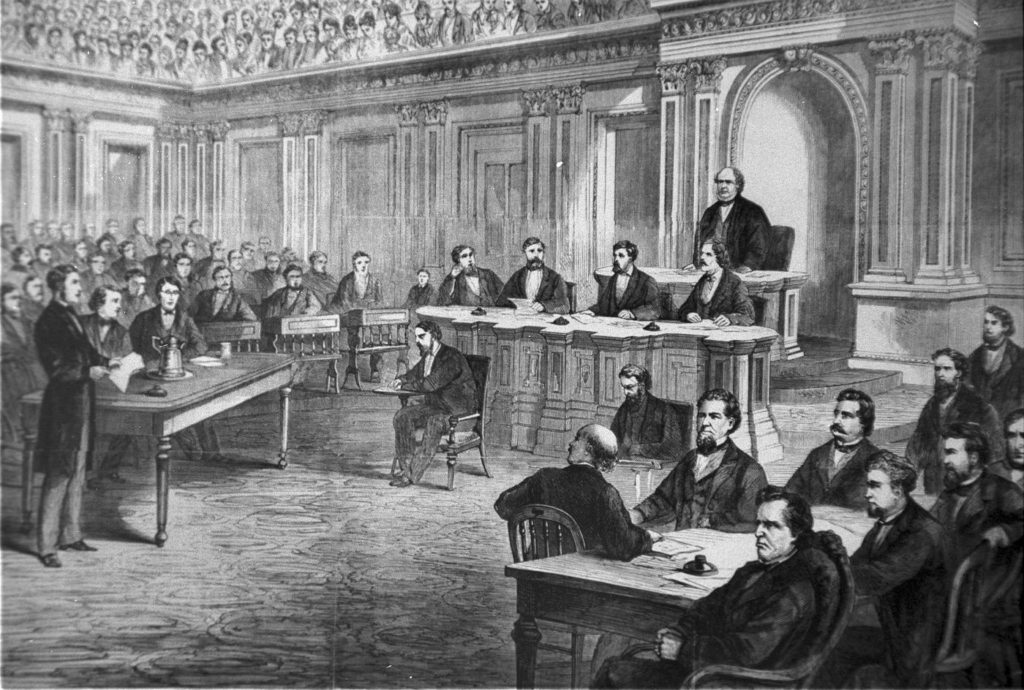
This question of constitutional interpretation is critical since the two articles of impeachment now pending in the Senate allege actions — including the abuse of power and the obstruction of Congress — that do not themselves constitute a violation of any criminal law. In Federalist Paper No. 65, Hamilton made clear that impeachable acts must involve “the abuse or violation of some public trust” and “relate chiefly to injuries done immediately to the society itself.”
The issue of interpreting “high crimes and misdemeanors” has reignited an old debate in American politics; i.e. whether the Constitution should be understood to reflect the modern context as a “living” constitution, or whether it should be interpreted to reflect what the founders meant at the time of the Constitution’s writing.
Regardless of the choice of words, an actual criminal offense is simply not a prerequisite for impeachment in this or any other case. The framers are clear on this point.
A different world
The Impeachment Trial of President Trump has shed light on the rules and procedures that govern impeachment trials. Although the Constitution calls for a trial, it did not specify whether this trial should comply with the rules of legal trials or should remain at the discretion of Congress. As we have seen in this article, neither the Senate nor the defense team have followed the general rules and procedures of legal trial.
This can be explained by the raw partisanship of Congress. If impeachment is not a no-confidence vote, then it should not be influenced by partisanship and should strictly follow the rules. Both the president and the nation are entitled to the same detached neutrality from Congress that we would expect from a judge and a jury in a regular criminal trial. Senators themselves took a special oath to do impartial justice. From a legal point of view, the impeachment procedure should rest solely on the national interest and the duty of impartial justice. In this case, it seems that partisan interests were stronger.
The opinions expressed in this publication are those of the authors and do not constitute a political engagement. Click here for more posts in our Law Journal.



